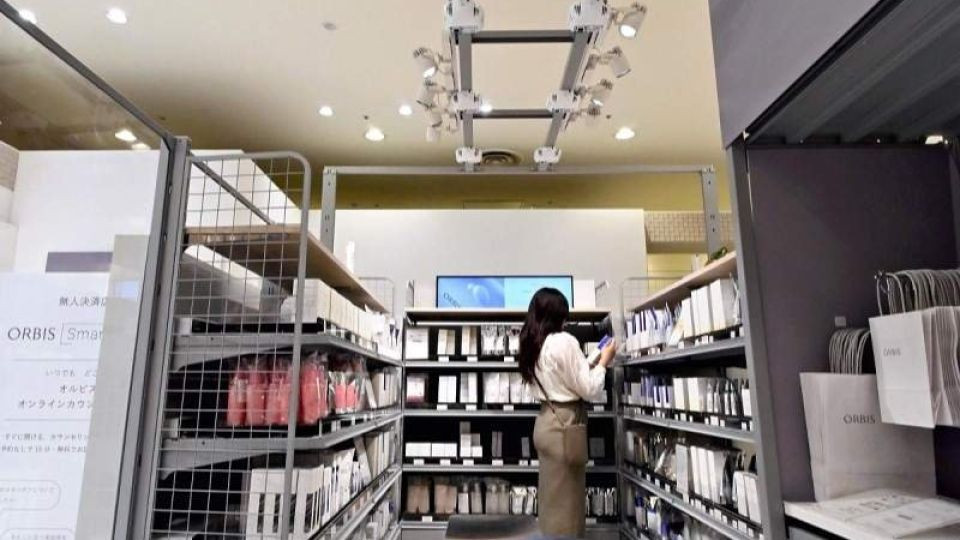Popular Reads
Top Results
Can't find what you're looking for?
View all search resultsPopular Reads
Top Results
Can't find what you're looking for?
View all search resultsStaff-free stores continue to multiply in Japan, despite pandemic’s end
The current boom in unmanned stores began with Gyoza no Yukimatsu, a chain selling frozen dumplings.
Change text size
Gift Premium Articles
to Anyone
D
uring the COVID-19 pandemic, unmanned shops drew interest as a way to prevent infection and cater to contact-averse customers. Now such shops are again in the spotlight as a means to help solve serious labor shortages.
Research is underway on systems to run unmanned shops safely and efficiently, and such systems have been introduced by a wide range of businesses, including cosmetics companies and a bookstores.
In May, cosmetics company Orbis Inc., based in Shinagawa Ward, Tokyo, opened an unstaffed store in the Granduo Tachikawa shopping mall at JR Tachikawa Station. While the company has 93 directly managed shops across the nation, this is the company’s first unstaffed shop. The shop is small, about 7 square meters, and offers about 90 cosmetics, such as lotions and serums.
When a customer picks up a product, several cameras installed in the ceiling and a weight sensor installed in the shelf instantly recognize the product. The customer then pays the amount displayed on a cash register screen, and a gate opens to let the customer out.
A 28-year-old company employee of Akishima in western Tokyo, who visited the shop, described its advantages by saying: “I don’t like being approached by staff. This way I can look around the shop without being bothered.”
Orbis launched the unstaffed shop mainly to solve staff shortages. While there are fewer products available than at staffed stores, it is easier to turn a profit thanks to low labor costs, according to the company.
“We would like to run a few more unstaffed shops nationwide,” said a 40-year-old official for the company in charge of overseeing its stores.
In late September, staff-free bookstore “Hontasu” opened in Tokyo Metro Tameike-sanno Station. Users must first register online and then enter the bookstore by scanning a QR code on their smartphone.
“There are already more than 3,000 people who have registered. It’s a better-than-expected start,” said an official for Nippon Shuppan Hanbai Inc., which runs the bookstore.
The current boom in unmanned stores began with Gyoza no Yukimatsu, a chain selling frozen dumplings. In 2019, there were 17 Yukimatsu stores, and the number continued to grow during the pandemic, when contactless services were in demand. Now, some 430 stores operate nationwide.
Japan is facing a declining population of workers. According to an estimate by the National Institute of Population and Social Security Research, the working-age population, or those aged 15 to 64, will fall to 45.35 million people in 2070, about 60% of the 75.09 million figure for 2020.
In a July survey conducted by Teikoku Databank, Ltd., the top five business sectors that suffered from the shortage of part-time and other irregular workers included both “miscellaneous” and “food and beverage” retail, suggesting the retail industry has been especially hard hit by labor shortages.
This has led to a new push for studies on unmanned sales systems. The NTT Group has developed an unmanned store system and began providing it mainly to small stores in July 2022. The system is in high demand with shops in office buildings that have seen sales decline due to more people working from home, as well as stores in regional areas facing serious labor shortages. One year after the launch of the system, about 100 stores had introduced it.
“Since the system allows users to understand the purchasing habits of customers and other data, they can run their stores without solely depending on the experience or intuition of the staff,” an official for the NTT Group said. “Our customers are satisfied with the results, which go beyond just reducing labor costs.”











